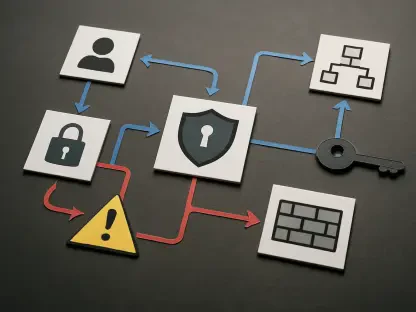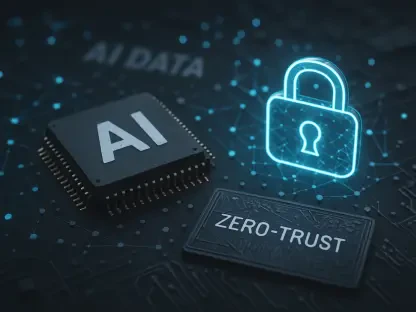In the fast-evolving landscape of IT and information security, the significance of formal assessments and certifications cannot be overstated. As a global leader in technical training, INE Security underscores the integral role these elements play in ensuring industry compliance, enhancing professional capability, and fostering continuous development within the IT and cybersecurity fields. While informal assessments such as peer reviews and on-the-job observations offer benefits by creating a flexible and adaptive learning environment, it is the formal assessments and certifications that reliably measure technical skills and prepare professionals to meet current and future technological demands. Dara Warn, CEO of INE Security, highlights that formal assessments are indispensable in consistently evaluating proficiency and maintaining high industry standards, which helps meet rigorous compliance requirements.
The Reliability and Compliance of Formal Assessments
Formal assessments are recognized for their reliability in consistently measuring technical skills, crucial for maintaining high standards in the IT industry. This structured method ensures that professionals are adequately prepared to handle the complex tasks they will encounter in their careers. Formal assessments are systematic, ensuring that all individuals are evaluated under the same conditions, which leads to fair and accurate measurement of their abilities. This approach not only allows employers to trust the skills their employees possess but also helps maintain an organization’s reputation by ensuring their team is up-to-date with the latest technological advancements and industry standards.
Compliance with industry regulations is another critical advantage of formal assessments. Certifications, for instance, are often a requisite for meeting regulatory mandates in sectors like healthcare, finance, and government. By obtaining certifications, professionals can demonstrate their commitment to adhering to industry standards and protocols, which is imperative for organizations that must comply with stringent regulatory requirements. INE Security’s training programs are designed to align with these regulatory standards, ensuring that those who complete their courses are not only proficient but also compliant with necessary regulations. This focus on compliance helps organizations mitigate risks and avoid penalties associated with non-compliance, thereby safeguarding their reputation and operational integrity.
Enhancing Professional Development Through Comprehensive Training Programs
INE Security’s structured approach employs comprehensive training programs utilizing case studies, role-playing, and hands-on training. These methods prepare professionals for formal assessments by offering a practical understanding of real-world scenarios. This practical training is crucial for developing the technical acumen required to excel in formal assessments and certifications, resulting in professionals who are not only knowledgeable but also adept at applying their skills in real-world situations. The emphasis on hands-on training ensures that learners can bridge the gap between theory and practice, making them more effective in their roles.
In addition to formal training, INE Security promotes continuous professional development through informal assessments such as peer reviews and on-the-job observations. These informal assessments encourage a flexible and adaptive learning environment, allowing professionals to continually refine their skills. This approach is complemented by INE Security’s proprietary assessment tool, Skill Sonar, which offers baseline technical skill assessments and generates personalized training playlists. This tailored approach ensures that each learner’s unique needs are addressed, making the training more effective and relevant. The combination of formal and informal assessments provides a holistic training experience that prepares professionals for the dynamic and constantly evolving nature of the IT and cybersecurity fields.
The Role of Certifications in Validating Professional Skills
Certifications play a pivotal role in validating professional skills and demonstrating an individual’s knowledge and expertise in a specific area. In the highly competitive field of IT, certifications can distinguish a professional from their peers, signaling to employers that they possess the necessary skills required for the job. INE Security emphasizes the importance of certifications in keeping skills sharp and industry-relevant. Their extensive training offerings include 16 Learning Paths, over 2,400 Hands-On Labs, nine INE Security Certifications, and access to a wide range of cross-training resources covering Networking, Cloud, and Data Science.
Moreover, certifications are instrumental in lowering barriers to entry and advancement in IT careers. They provide a standardized measure of competence, making it easier for individuals to prove their capabilities and for employers to assess potential hires. By offering advanced technical training and making it accessible worldwide, INE Security is committed to providing opportunities for professionals to advance their careers. This commitment to accessibility is reflected in their efforts to lower the barriers to entry for individuals looking to enter the IT field, making it more inclusive and diverse.
Conclusion
INE Security utilizes a structured method that includes comprehensive training programs with case studies, role-playing, and hands-on exercises. These techniques help professionals gain practical experience with real-world scenarios, preparing them for formal assessments. This practical training is vital for acquiring the technical skills needed to excel, producing professionals who are knowledgeable and proficient in applying their skills. The focus on hands-on practice ensures that learners can connect theory with practice, enhancing their effectiveness in their roles.
Beyond formal training, INE Security advocates for continuous professional growth through informal assessments like peer reviews and on-the-job observations. These methods foster a flexible learning environment where professionals can continually enhance their skills. INE Security’s exclusive assessment tool, Skill Sonar, evaluates baseline technical skills and creates personalized training playlists based on individual needs. This approach makes the training more effective and relevant. The combination of formal and informal assessments ensures a comprehensive training experience, preparing professionals for the ever-evolving IT and cybersecurity fields.









